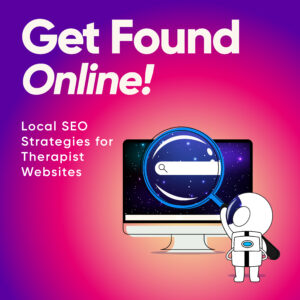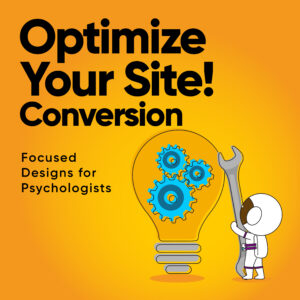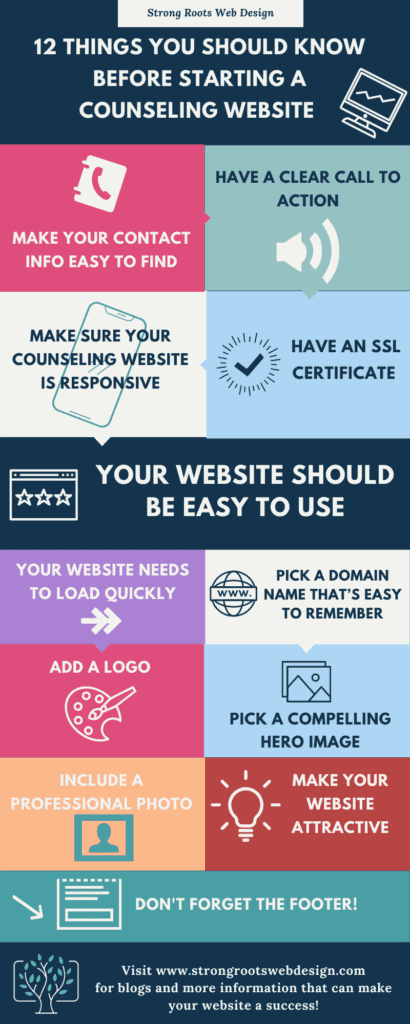
Search Engine Optimization for Beginners: FAQs on SEO
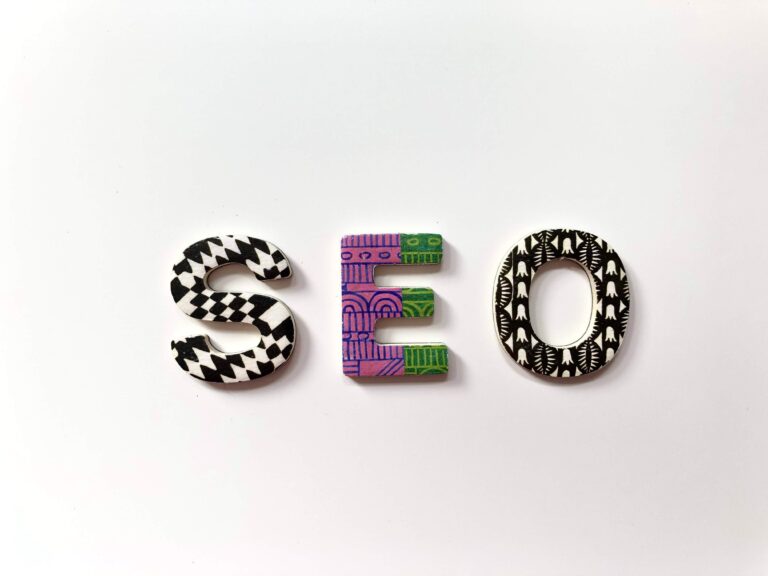
Let’s talk about Search Engine Optimization for Beginners. We’re going to answer 15 of the most frequently asked questions about what it is, why you should care about it, and what it can do to help you grow your brand and practice.
Search Engine Optimization for Beginners
Please consider this as your very own beginner’s primer to everything SEO has to offer. By the time we’re done, you’ll have a good idea of what SEO is all about and how it can help you reach your target audience and connect with your ideal clients.
1. What is a search engine?
The first thing about learning Search Engine Optimization for Beginners is to know what is a serach engine. A search engine is an online tool that helps people find information on the internet.
Search engines are used by internet users to find answers to their questions. As a website owner, it’s in your best interest to be the one to provide them with the answers.
A quintessential example of a search engine is Google. Judging by its current hold on the market, Google is probably the only example we need to talk about, at least for now.
For all intents and purposes, when we talk about search engines, we are mostly talking about Google. Nevertheless, it is worth noting that there are other search engines such as Bing, Yahoo, AOL, and Ask.com that pretty much work in the same fashion.
In terms of SEO, as long as your website is optimized for Google, it should be optimized for other search engines as well.
2. What is search engine optimization?
Search Engine Optimization, or SEO, is the practice of optimizing your website so that it ranks higher in the organic search results in Google. SEO is practically all the things that you do to your website in order for Google to consider it a reliable source of valuable information.
SEO helps your website achieve higher Google rankings. In doing so, it helps increase both the quality and quantity of traffic to your website. This increase in website traffic is what will allow you to connect with your target audience and reach out to your ideal clients.
The history of SEO dates back to the 90s when search engines were still at their infancy. Nowadays, SEO has become an absolute necessity if you want to be able to leverage the internet in your overall marketing strategy.
It would be near-impossible to learn absolutely everything about SEO. What we can do instead is go over its most important concepts and components.

3. Why should you care about SEO?
Although it means Search Engine Optimization, SEO is more about people than it is about search engines themselves.
Not unlike therapy, a lot of SEO is about understanding what’s on people’s minds—what are their questions, what information are they looking for, what kind of content best grabs their attention.
SEO gives you insight to your target audience. This insight is what empowers you to reach out to people that best match your professional expertise, your specialities, and the services you provide.
Ranking higher in Google is the obvious goal of SEO. However, this is really just a means to an end. The more practical benefits of SEO rest in the organic traffic it drives to your website.
The traffic that SEO generates is powerful because it is high-intent traffic. For a therapy practice, this means being able to reach out to potential clients who are actively seeking the kind of support that you provide.
4. Are SEO and advertising the same thing?
NO. SEO and advertising are NOT the same thing.
In the world of search engine marketing, SEO sits opposite to Pay Per Click (PPC) advertisements. This means that SEO utilizes organic search results instead of paid advertisements.
Organic searches account for more traffic than advertisements. Most internet users gloss over advertisements and instead click on the first few organic search results on Google.
SEO, when done correctly, drives consistent traffic. If you create a piece of proper content that carries all the right keywords and all the right optimizations, Google will make sure that you’re rewarded with high search result rankings.
As long as people continue to find value in your content, Google will continue to send traffic to your website. This simply isn’t the case for paid advertisements which require continuous funding in order to generate traffic.
SEO content is quite easy to spot. While ads are clearly labeled, organic results that rank through effective SEO take the form of blue links.

5. What about other search engines?
Earlier we mentioned how Google was the prime example of a search engine because of its dominant hold on the market. We also mentioned how optimizing for Google means having your website optimized for other search engines as well.
It’s important to note that Google’s dominance in the market is currently undisputed and unchallenged. So it makes perfect sense that you would want to position your website to show up in the first page of Google. As other search engines tend to follow in Google’s footsteps anyway, ranking successfully in Google would mean ranking successfully in other search engines as well.
The truth is that although SEO stands for search engine optimization, with the current undisputed dominance of Google, it wouldn’t be inaccurate to just refer to SEO as Google optimization instead.
6. How does Google work?
Google is constantly on the lookout for websites and webpages that provide high-quality information that’s relevant to specific search queries. The process in which Google and other search engines catalog content on the internet consists of these main steps—crawling, indexing, and ranking.
Google starts off by sending crawlers or bots to your website. These Googlebots crawl your website and web pages continuously, scouring for both code and content for each URL they find. By hopping along the various parts of your website, Googlebots are able to find new content and add it to their index.
Once your website is thoroughly crawled, the information gathered by Googlebots are indexed. Using the latest Google algorithm, Google analyzes and categorizes indexed information.
Once indexed, Google evaluates whether the content you have on your website is relevant to a specific search query. This is mostly based on the keywords you have used.
Google scans its index everytime a search query is submitted and pulls out a list of the best and most relevant results. This list is known as Google’s search engine results page or SERP.
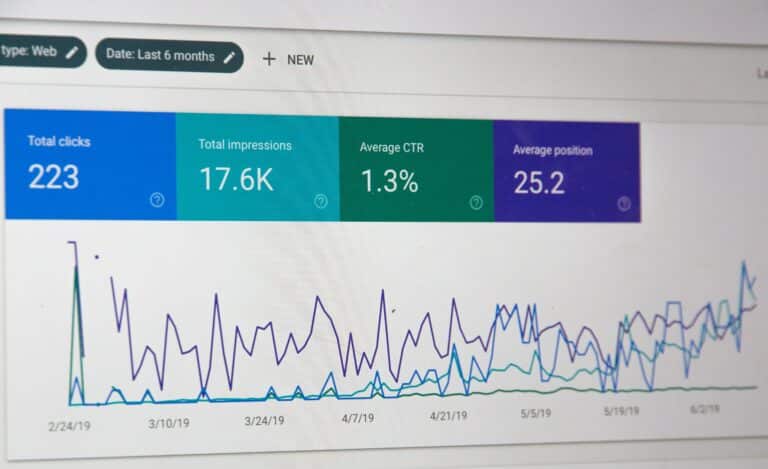
7. How does Google determine rankings?
Since its inception, Google has always wanted the same thing—to provide the most useful and helpful answers to search queries in the most useful and helpful formats. Rankings in SERP are determined by the Google Search Algorithm.
The Google Search Algorithm, or Google Algorithm, is a catch-all term used to refer to all the proprietary algorithms, machine learning systems, and other technologies that Google uses to store, retrieve, and order information.
The Google Algorithm is what determines the search result rankings of websites and webpages. Everytime a search query is entered, Google pulls out content that the algorithm deems most relevant.
It’s worth noting that the Google Algorithm is constantly evolving in order to improve the quality of search results. It’s not uncommon for minor algorithm updates to take place on a daily basis. The majority of the core changes, however, to the Google algorithm usually rolls out a couple of times a year.
8. What makes for an SEO-friendly website?
Google puts a premium on a few things when it comes to determining the ranking of your website. These include having relevant keywords, providing great content, and housing backlinks from reputable websites. We’ll talk more about these things in a bit.
Google also takes into consideration other factors when ranking your website. Most of these factors relate to how people interact with your website. Do they stay on your site long enough to find the information they need? Do they bounce back to the search page to look for another link? Or do they just skip your content in the search results altogether?
At the end of the day, Google rewards websites that provide valuable information to people looking for answers. So optimizations should really be about making your website genuinely valuable and helpful to your target audience.

9. What role do keywords play in SEO?
Before you start optimizing your website, it’s important that you determine exactly what it is you’re optimizing for. The most effective way of doing this is through words that your target audience use when they search for information on Google—these are what’s referred to as keywords.
Brainstorming for keywords and phrases that are commonly used in your industry is the best way to start optimising your website. For a therapy website, these might be things like—mental health, trauma, depression, EMDR, CBT, and so on.
Understanding what language your target audience uses when searching for information is crucial in making your website SEO-friendly. Keywords will point you to the right direction in terms of creating content that best drives traffic to your website.

10. What role does content play in SEO?
As cliche as it sounds, content is still king when it comes to SEO. The Google algorithm appreciates content that’s genuinely helpful and useful to people looking for information. So your overall content strategy should be built on the needs of your audience.
Nowadays, ranking for almost any keyword has become much more difficult than it was just a few years back. The market for keywords is simply oversaturated. Fortunately, there’s one strategy that still remains effective. Widely referred to as the “10x content strategy”, the idea is to create high-quality, keyword-driven content that’s 10x better than anything out there.
When it comes to written content, many people speculate that the actual length is an important ranking factor. Many people believe that written content that consists of more than 2,000 words ranks better in SERP.
11. What roles do links play in SEO?
Housing high-quality links from websites that Google considers reputable and trustworthy is incredibly powerful in driving search traffic to your website.
Links from other websites, commonly referred to as backlinks, are essentially internet votes of confidence. These links show Google that people are actually vouching for the content you create.
Backlinks work in a similar fashion as academic citations. In the early days, Google developers figured that if trustworthy resources link to a certain website, then that website too must be trustworthy.
Link building can be a labor-intensive and time-consuming process. It typically involves creating and promoting content that’s valuable enough to warrant organic internet attention, including website mentions and social media shares. A popular link-building tactic is to actually reach out to site owners and editors to convince them to link back to your website.
Link building is often a crucial part of any SEO strategy, mainly because it’s near impossible to rank well in SERP without high-quality links pointing to your website.
12. What is on-page, off-page, and technical SEO?
Everything that affects your Google ranking (including keywords, content, and backlinks) typically fall under three basic SEO categories—on-page SEO, off-page SEO, and technical SEO.
On-page, also called on-site SEO, are essentially all the things you do to optimize your web pages from top to bottom. On-page SEO largely consists of optimizations to both the content and the HTML source code of your website. On-page SEO aims to improve the ranking of your page in SERP, as well as to create a better user experience for your visitors.
Off-page SEO broadly covers all the ranking strategies that take place outside of your own website. Off-page SEO primarily aims to generate the necessary backlinks—which, as we previously learned, is crucial in helping your website build trust and authority.
Technical SEO usually focuses on implementing performance tweaks to the foundational code of your website. As its name suggests, technical SEO can be quite technical and complicated. However, it’s endgame is quite simple and singular. Technical SEO aims to make your website easier for Google to find, understand, and index, so that it ranks favorably in SERP.

13. How do you measure SEO success?
By now, you have a good idea of what SEO is all about. But how can you actually tell whether or not your optimizations are successful? How do you measure the performance of your SEO strategies?
The easiest and most obvious answer, of course, is to keep track of how well your website is ranking in SERP. But there is an element to SEO that’s arguably more important than ranking.
Yes, SEO is primarily done in order to help your website rank higher in Google. Yes, SEO strategies mainly focus on driving organic traffic to your website. However, at the end of the day, both ranking and traffic are a means to accomplish more tangible business objectives.
In the case of therapy websites, SEO is usually done to try to bring more clients into the practice. As such, certain key performance indicators serve a more practical purpose, including—email signups, contact form submissions, phone calls, etc.
A genuinely successful SEO campaign is capable of accomplishing so much more than surface-level metrics. When done well, it helps real businesses realize real-world goals.
14. What is white hat SEO and black hat SEO
White hat and black hat are cinematic representations of the good guys and the bad guys in many Western movies. In SEO, the terms white hat and black hat are used to describe two opposite approaches to optimizations—one that follows the rules set out by Google and one that doesn’t.
White hat SEO refers to the implementation of on-page, off-page, and technical SEO strategies that are well within the guidelines set out by Google. White hat SEO is often a long-term strategy that focuses on contributing genuinely valuable content to the internet. Google rankings achieved through white hat SEO are typically a result of high-quality content and strategic optimizations that benefit the end-user.
Black hat SEO, on the other hand, refers to the implementation of questionable and unethical SEO tactics that attempt to trick search engines into improving website ranking. While black hat SEO can, in fact, temporarily improve rankings, it will also prompt Google to penalize and ban your website sooner than later.

15. Should you hire an SEO professional?
There are a number of SEO strategies that you can implement right away. On the other hand, there are optimization concepts that will require more time, effort, and mastery.
SEO isn’t easy by any stretch of the imagination, but it’s also not rocket science.
SEO is something you can do on your own. It’s not impossible to get the basics down within a couple of months. Mastering SEO, however, is another thing altogether.
Depending on how much of your time and energy you’re willing to invest, and depending on the goals you set out for yourwebsite—you could perform SEO yourself, or you could choose to leave the SEO work to the professionals.
Either way, when you consider that roughly 60% of all web traffic comes from Google, learning a thing or two about SEO through this Search Engine Optimization for Beginners article and other resources you may find online is certainly something worth your time and effort.
While Search Engine Optimization is designed to drive website traffic and improve your rankings in SERP, it also serves real-world business goals. It empowers you to reach out to more people, and it helps encourage more clients to walk through the doors of your practice.
Did you like this post? Share it!
Related Reads:
- SEO for Therapists: The Top 3 Tips – Therapist Website Design
- Learn SEO for Private Practice and your content strategy for your website
- The Ultimate SEO Guide For Therapists
- SEO Strategies For Mental Health Professionals – Strong Roots Web Design
- Unlocking the Power of SEO Keywords for Therapists
- Find the Right Longtail Keywords For Your Blogs | Local SEO Strategies
Hi! I’m Sarah.
I help counselors and therapists have a bigger impact on the world through better client connection. I do this by creating beautiful visuals and strategically designed websites.







